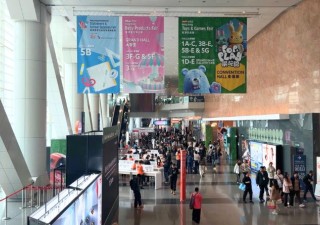India Features in LES USA and Canada Deals of Distinction
14 November 2018

The Licensing Executives Society (USA and Canada) named five licensing deals as its 2018 Deals of Distinction at its 2018 Annual Meeting in Boston this month.
Two of the deals had participants from India, including one involving a low-cost, temperature-tolerant vaccine and one involving mobile phone handsets.
The Industry/University and Government Laboratories deal went to the Serum Institute of India and the National Institute of Allergy and Infectious Diseases, which is part of the US National Institutes of Health (NIH).
“The idea behind this project is that disease and the ability to cure it doesn’t really stop at any particular border,” said Steven Ferguson, a senior advisor at NIH. “Particularly, the issue of rotavirus is an important issue in the United States and in other areas of the world, where it is life-threatening. We’re very pleased through this international partnership to have a vaccine come forward.”
Jagdish Zade, deputy director of the Serum Institute, said that the vaccine has reduced the price of rotavirus treatment from US$60 to US$1, and has made it available throughout the world. “The Serum Institute had the technology for this, and NIH provided the science for this project. Joining the science and technology [resulted in] this vaccine being prepared and [being made] commercially available,” Zade said.
The vaccine has been approved by the World Health Organization and the government of India.
The consumer products sector award went to Ericsson and Micromax.
“After years of negotiation and litigation, these two parties entered into a standards essential patent license that provided access to Ericsson’s cellular technology globally. This deal also demonstrates increased respect for IPR in India,” said Lewis Stark, a New York-based partner for royalty audit and contract compliance at Prager Metis CPAs, who presented the award on behalf of the LES consumer products sector committee.
“We started negotiating with Micromax over a patent license in 2009, and started litigation with Micromax in 2013, so it’s been a long time coming for this deal,” said Patricio Delgado, vice president of FRAND compliance at Ericsson. “The reason it’s special is because the impact of having India truly respect IPR and contribute back to the further development of cellular technology.”
Delgado specifically praised the Delhi High Court for its role in the process. “There’s been some commentary on India and whether it respects IPR, and I think the Delhi High Court really treated us fairly. Even though it took a while in the court system, we felt like it was an even-handed process,” he said.
Micromax is one of India’s largest handset vendors.
The winning deal in the life sciences sector was between Pieris Pharmaceuticals and AstraZeneca, who cooperated on the preclinical development of antibody mimics to treat respiratory diseases. In the energy, chemicals and materials sector, LES recognized the partnership between Lightbridge and Framatome in the commercialization of nuclear fuel technology. The high technology sector recognized Blockstack’s US$50 million initial coin offering.






